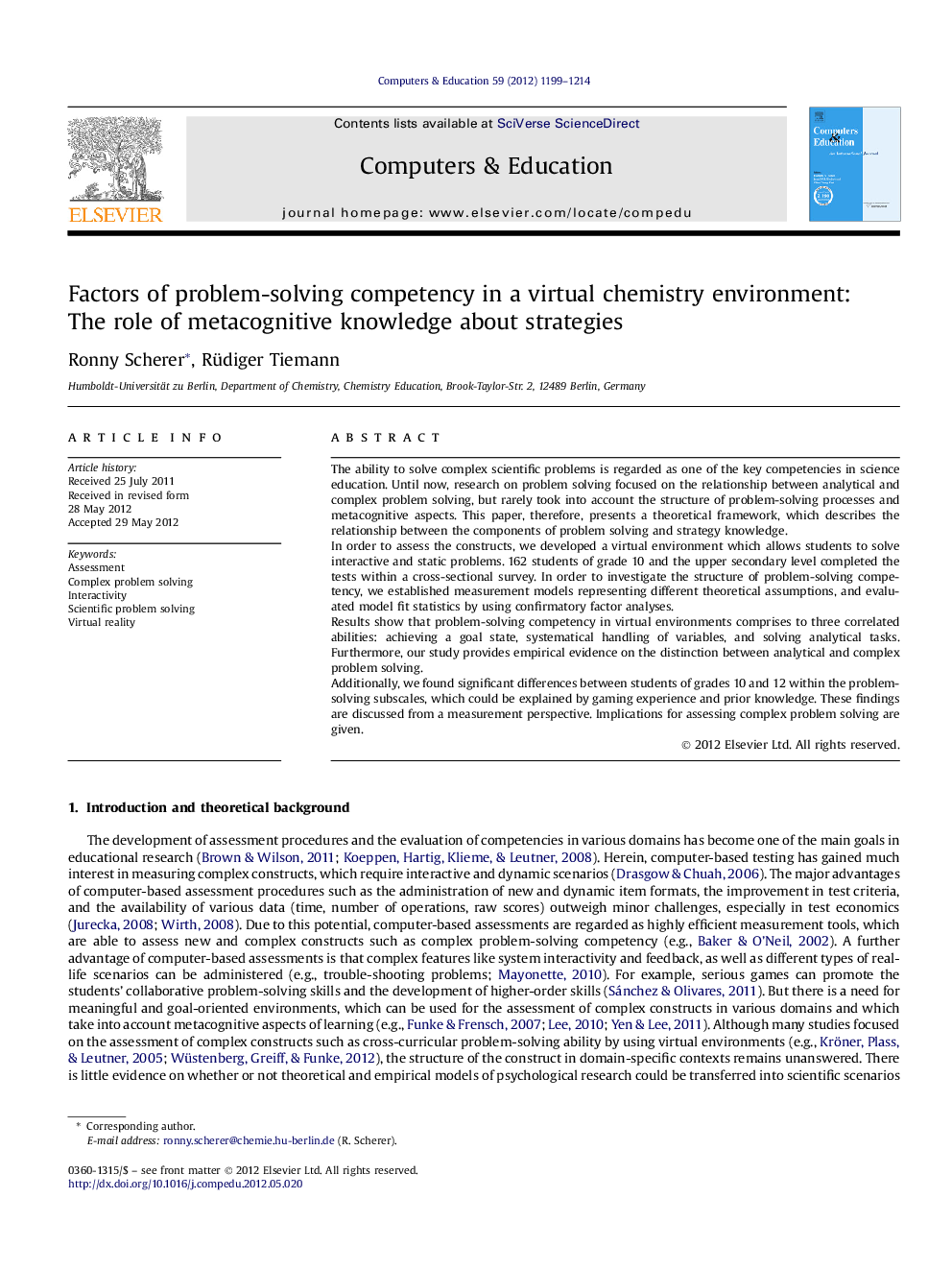| Article ID | Journal | Published Year | Pages | File Type |
|---|---|---|---|---|
| 348662 | Computers & Education | 2012 | 16 Pages |
The ability to solve complex scientific problems is regarded as one of the key competencies in science education. Until now, research on problem solving focused on the relationship between analytical and complex problem solving, but rarely took into account the structure of problem-solving processes and metacognitive aspects. This paper, therefore, presents a theoretical framework, which describes the relationship between the components of problem solving and strategy knowledge.In order to assess the constructs, we developed a virtual environment which allows students to solve interactive and static problems. 162 students of grade 10 and the upper secondary level completed the tests within a cross-sectional survey. In order to investigate the structure of problem-solving competency, we established measurement models representing different theoretical assumptions, and evaluated model fit statistics by using confirmatory factor analyses.Results show that problem-solving competency in virtual environments comprises to three correlated abilities: achieving a goal state, systematical handling of variables, and solving analytical tasks. Furthermore, our study provides empirical evidence on the distinction between analytical and complex problem solving.Additionally, we found significant differences between students of grades 10 and 12 within the problem-solving subscales, which could be explained by gaming experience and prior knowledge. These findings are discussed from a measurement perspective. Implications for assessing complex problem solving are given.
► A problem-solving environment with static and interactive features was designed. ► Confirmatory factor analysis revealed 3 components of problem-solving competency. ► One can distinguish between analytical and complex problem-solving competency. ► Strategy knowledge had no significant effect on problem-solving performance. ► Prior knowledge and intelligence are predictors of problem solving.
